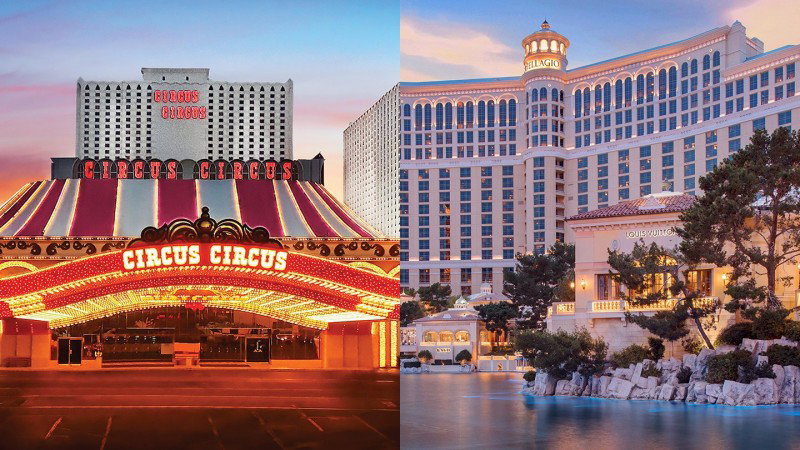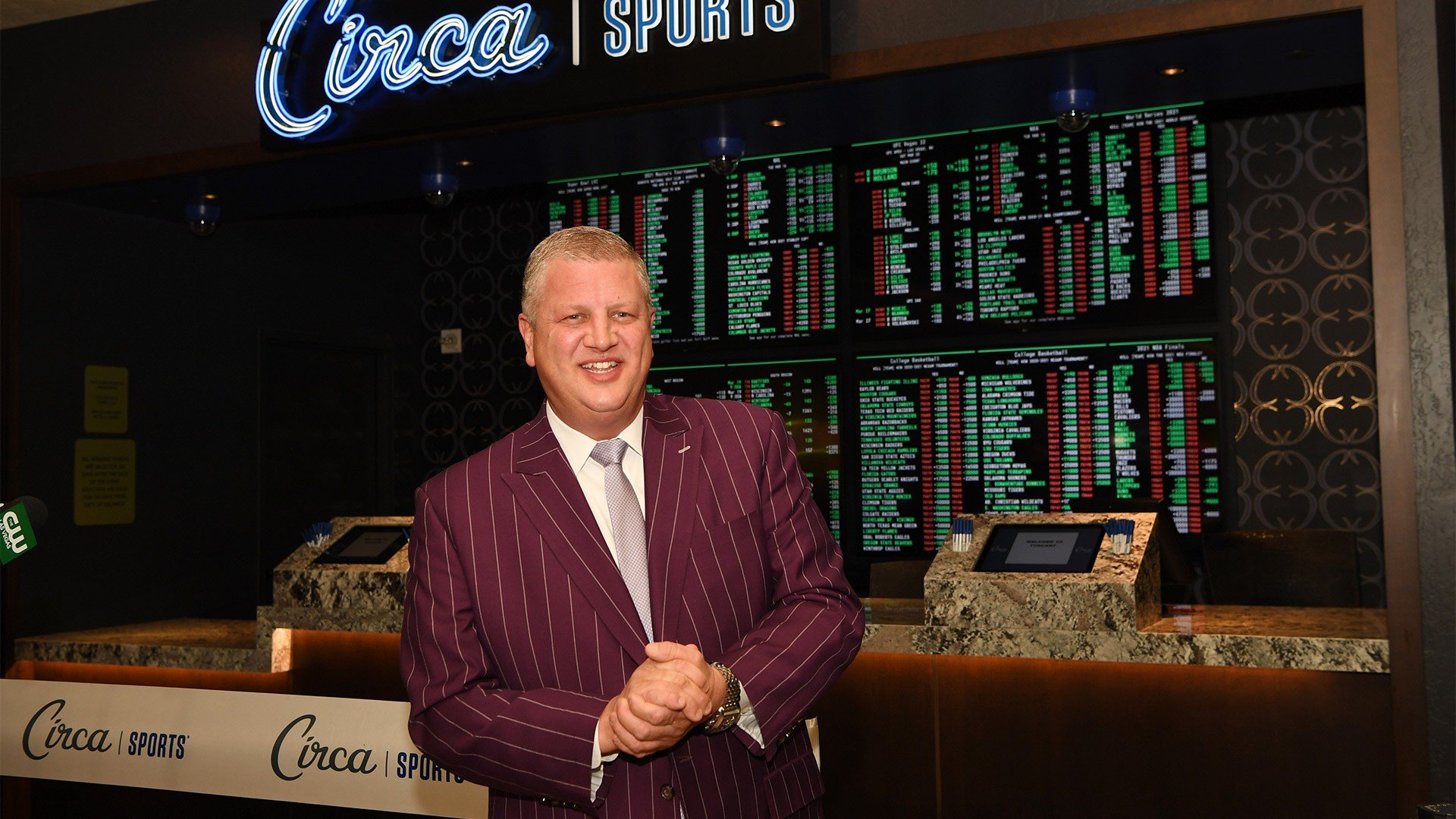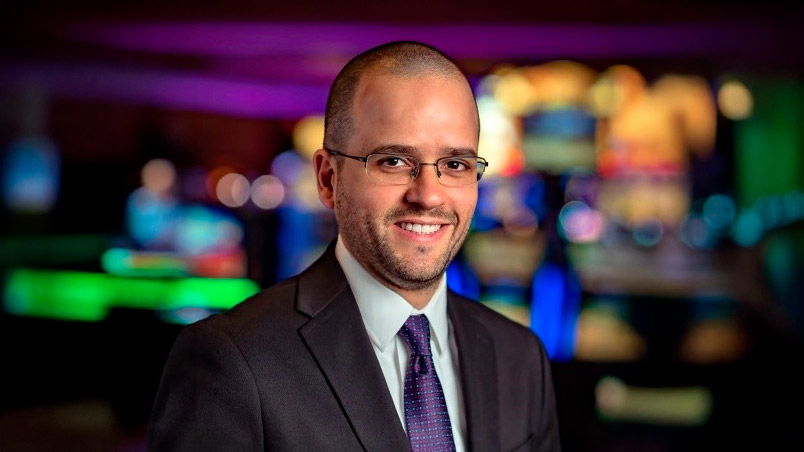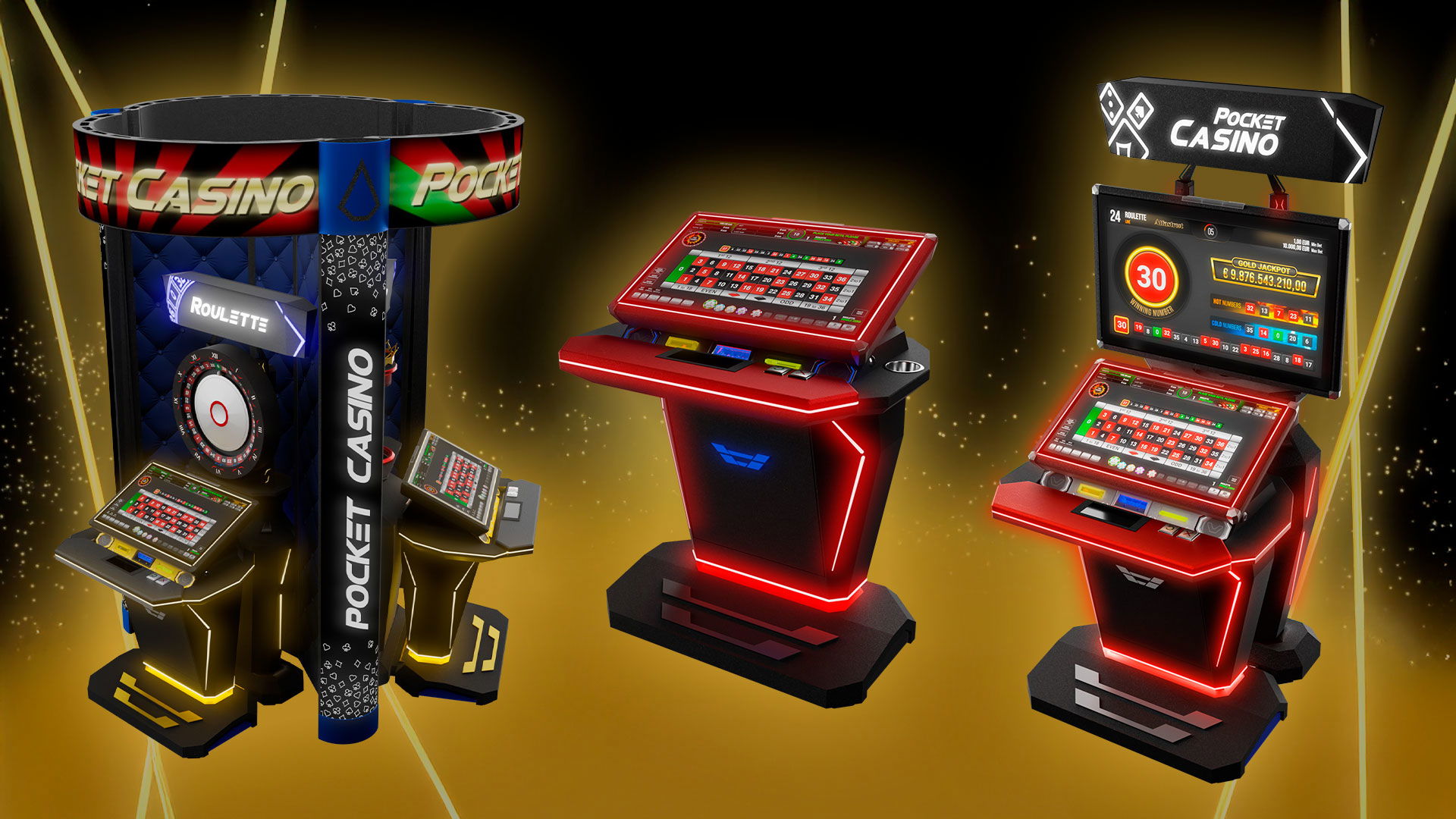MGM to sell Bellagio to Blackstone, Circus Circus to Phil Ruffin

MGM Resorts International said Tuesday it is selling two casinos on the Las Vegas Strip, its landmark Bellagio property and the Circus Circus, in separate real-estate deals.
The global casino giant is putting the Bellagio into a joint venture controlled by a Blackstone Group Inc. real-estate investment trust. MGM is to hold a 5% stake in the venture and $4.2 billion cash and will continue to operate the hotel and casino, which it will rent from the venture for $245 million a year. The transaction values Bellagio at $4.25 billion, the company said.
MGM said in a press release it is separately selling another Strip casino, Circus Circus, to an associate of Phil Ruffin, who owns Treasure Island in Las Vegas, for $825 million. Ruffin purchased the hotel property along with its 37 adjacent acres, paid with $662.5 million in cash and $162.5 million senior notes due 2024, which will be secured by the 37 acres of adjacent land. The property’s name will remain the same.
“The opportunity to own 102 acres on the Las Vegas Strip was very interesting. From a strategic standpoint, Circus Circus is the most recognizable name on the north strip,” Ruffin said. “Treasure Island is the crown jewel in my portfolio and Circus Circus adds another layer of gaming customer to my holdings.” The transaction is expected to close in the fourth quarter of 2019 subject to customary closing conditions, including receipt of necessary regulatory approvals.
MGM Resorts has been evaluating potential property deals to raise cash and pay down debt driving an asset-light strategy since its board of directors formed a real-estate committee in January. The sale will free up cash, offering MGM flexibility to operate in new and different ways, said MGM Resorts Chairman and CEO Jim Murren, as reported by the Wall Street Journal. He said the net proceeds from the two real-estate deals will be $4.3 billion.
Among the potential new business areas Murren cited were sports, sports betting, entertainment and a presence in Japan, which recently legalized casino gambling in a handful of locations. “That is a better use of our capital resources than the traditional gaming model,” Murren said.
Japan’s move last year to legalize gambling opened the way for global casino operators to pursue licenses there. MGM Resorts has adopted what it calls its “Osaka-first” strategy, pouring its efforts into securing a license in that city. Competitor Las Vegas Sands Corp. in August said it would not pursue a bid to open in Osaka and will focus instead on Tokyo and Yokohama.
In 2015, MGM Resorts created a real-estate investment trust, MGM Growth Properties LLC, which now holds the real estate of MGM-operated Strip properties including Park MGM, Mirage and Mandalay Bay and nearly all of MGM Resorts’ regional properties. MGM Resorts still owns MGM Grand in Las Vegas, MGM Springfield in Massachusetts, a 50% stake in CityCenter in Las Vegas and 68% ownership in MGM Growth Properties. Murren said the company envisions owning even fewer assets in the future.
The Bellagio becomes the second Las Vegas Strip property for New York-based Blackstone, following its $1.7 billion acquisition of the Cosmopolitan hotel and casino in 2014 that it owns and operates. The firm considered the hotel and casino a turnaround play and has put another $500 million into finishing and renovating the property.
The Bellagio represents a different type of investment for Blackstone, which will serve as a landlord, while MGM continues to operate the property. Blackstone views this property as a more stable investment that won’t require any additional capital from Blackstone.
“Owning the Bellagio under a long-term lease with MGM provides stable cash flow and excellent downside protection for the asset,” said Tyler Henritze, head of U.S. acquisitions for Blackstone’s real-estate group.


















































